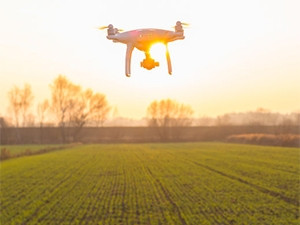
The addressable market value of drone-powered solutions is valued at over $127 billion. This is the value of current business services and labour that are likely to be replaced in the near future by drone-powered solutions.
This is according to a report recently issued by PwC on the application of drone-powered solutions. The report states that the drone revolution is disrupting a broad spectrum of industries ranging from agriculture; mining; transport and logistics; to filmmaking.
Andrew Shaw, capital projects and infrastructure leader for PwC Africa, adds: "We are currently in discussion with several major South African companies from a wide range of industries about how they can use drones to improve their business processes. Using the analytical data collection ability of drones allows companies with complex infrastructure delivery and maintenance requirements to accurately assess the quality of their assets either under construction or already in operation. There is no doubt that drones are making the transition from a novelty item to an indispensable business tool and that the analytical capabilities they provide are evolving very rapidly and will change the nature of certain industries."
According to the report, the agricultural sector globally has an addressable market value of about $32,4 billion. "Drought assessment, plant stress monitoring, crop health monitoring, yield monitoring and field surveying before planting using drones mirrors overseas trends that will see the global market for drone-powered solutions in agriculture reach billions," it says.
Philip Smerkovitz of TeleEye SA, says farmers can realise the many benefits of drones without having any flying experience. "Drones enable farmers confronted with the realities of producing food in an uncertain environment to take evasive action. Fortunately, in SA, the 2015 final promulgation by the Minister of Transport of new rules regulating the use of remotely piloted aircraft systems brought welcome clarity and a great deal of interest in drones by landowners and farm managers."
Smerkovitz's firm recently launched a local online portal dedicated to the disruptive application of DJI UAVs across key economic sectors that include agriculture. "Local farmers deserve access to world-leading technology tools that increasingly include drones," he added.
Mico Stander of Agrimotion agreed, warning that although using drones allows farmers to increase farming efficiency, the results are highly dependent on interpretation of the data and the type of technology used.
In SA commercially used drones must be registered with the South African Civil Aviation Authority. In order to obtain the licences for operating drones commercially, pilots must attend a RPAS training programme. They are also required to carry a valid third party liability insurance document. Safety precautions are taken legally, in that drones must be flown within 400 feet horizontally and within the visual line of sight.
Share